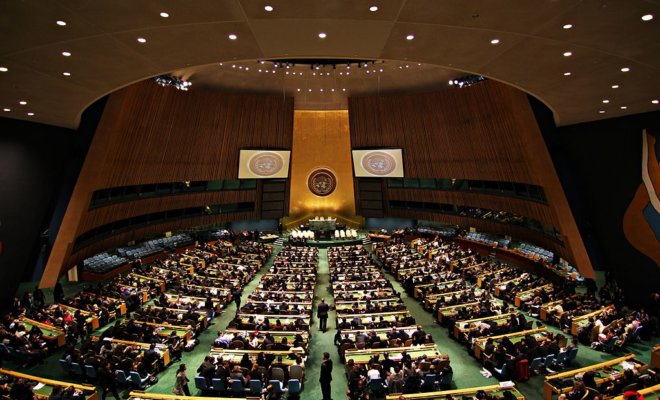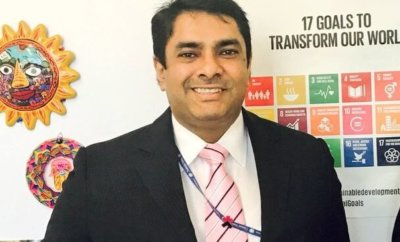Immigration
Differentiate Between Legal and Illegal Migration, India Tells UN

UN General Assembly
Photo: Wikimedia Commons
Without the differentiation there is a risk of hurting immigrants who follow the law while benefiting criminal human trafficking network, India’s deputy Permanent Representative Tanmaya Lal told the UN
Observing that there is need to differentiate between legal and illegal migration, Tanmaya Lal, India’s Deputy Permanent Representative to the United Nations, said on May 14 that the Global Compact on Migration being negotiated was tinted by a focus on illegal immigration in some countries, IANS reported.
Without the differentiation, there is a risk of hurting immigrants who follow the law while benefiting criminal human trafficking network, Lal said. “This is unfortunate, since this negative narrative is not at all helpful and, in fact, hurts the genuine interests and concerns of regular, legal migrants whose ongoing contribution to both their host and origin countries is well-documented but risks being ignored,” he added at a session of an intergovernmental conference held at the UN General Assembly to adopt a Global Compact for safe, orderly and regular migration. The draft is to be adopted in December at Marrakesh in Morocco.
“It needs to be stressed and made clear that this category of (illegal) migrants cannot be treated at par under national laws with the legal migrants,” Lal told the session.
Pointing out that migration has become a complex and divisive issue, and may imply different things to different groups at different times, he further said that the lack of differentiation between the regular migrants and the “numerically far fewer irregular migrants can only disadvantage the larger interests of regular migrants and even incentivise irregular migration.”
Agencies of all countries should cooperate to defeat the challenges put forth by criminal networks that are involved in illegal migration, Lal added.
Several activist organizations, international leaders, and organizations within the United Nations have tried to remove the differentiation between the categories of legal and illegal migrants, and refugees, and attempted to limit rights on some countries to observe their laws, the report said. This has influenced debates on immigration at the United Nations and subsequently, the draft Global Compact.
Lal has suggested that the Global Compact draft must “focus more on how to facilitate regular migration,” as opposed to “what rights the irregular migrants should be entitled to.” It should be reworked to “highlight the overwhelming positive contribution of international migration upfront in the document and be provided adequate space in the text,” he recommended.




You must be logged in to post a comment Login